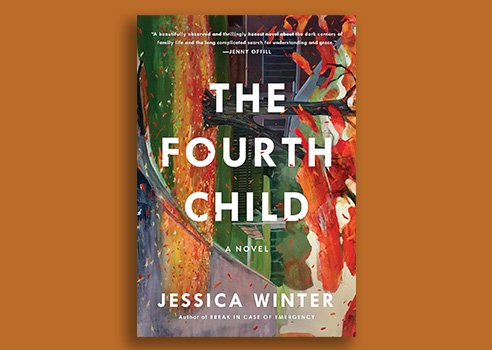Reading time: About 2 minutes
I like to share interesting pieces of figurative language I encounter in my reading. I write today about a series of metaphors from Jessica Winter…
An editor at The New Yorker, where she also writes about family and education, Jessica Winter is the author of the tremendous new novel The Fourth Child published by Random House.
Initially focusing on a smart, devoutly Catholic young woman named, Jane, who becomes pregnant while in high school, the book explores all sorts of fascinating topics. It addresses religious belief, abortion, adoption, sexuality and parent-child relationships. Later, the book becomes even more intriguing when it delves into the viewpoint of Jane’s daughter, Lauren.
While the story grabbed my attention, what kept it was Winter’s superb use of figurative language. Here are my favourite examples:
- The baby gestured toward one corner of her mouth, her chubby wee hand an elegant comma, as she did when she was hungry.
- She stood in front of the full-length bedroom mirror and considered her sagging, dimpled stomach and wide round thighs with the same nodding equanimity with which one might assess a grain elevator.
- Lauren’s whole body buzzed. The thrill of a good lie. Her head filled with fizzy soda.
- Past sunset, mottled lights fell on the [car’s] hood and dashboard, painting geometric patterns on the backs of Lauren’s hands.
- I have a sister, Lauren thought, and felt a feral nothing, a gust of wind, present and unseen.
- It was this man with the creamy voice, stroking his beard like he could extract a sermon through his fingertips.
- Father Steve had an easy confidence, like he could convince other people he was clever just by believing it himself, puffing up his chest like he was converting the oxygen he extracted from the air into something pure, edifying, forest-sustaining.
- The great-aunts came to her birthday party, Eunice and Faye, with their crumpled-paper voices and ashtray kisses.
- They mixed big polyester prints with dark brocade scarves, and all their clothes smelled like the Salvation Army.
- Their marriage was the ficus in the dining room that Jane was occasionally startled to discover was still alive.
- Jane’s children regarded her less as a moral-philosophical authority and more as a faucet to be turned on.
- John did look depressed up there on the Saturday Night Live stage, but pointedly so, focused and industrious in his depression, like he was studying for the depression SATs.
- “I’m sorry,” Lauren said. The o on sorry quavered like a soap bubble.
- Lauren tried for what felt like a long time to respond, staring at the slice [of pizza] on the table as it succumbed to a yeasty rigor mortis, the greasy edges of the paper plate starting to curl around it like a carnivorous flower, her lips opening and closing around the thing she couldn’t say.
- [He had] a voice that traveled from somewhere near his sternum, as if the striated muscles within his chest curved around themselves in the matter of a contrabassoon, the grave quite effort at speech producing a sub-bass frequency that Lauren could feel through her feet even as she leaned in to hear him better.


